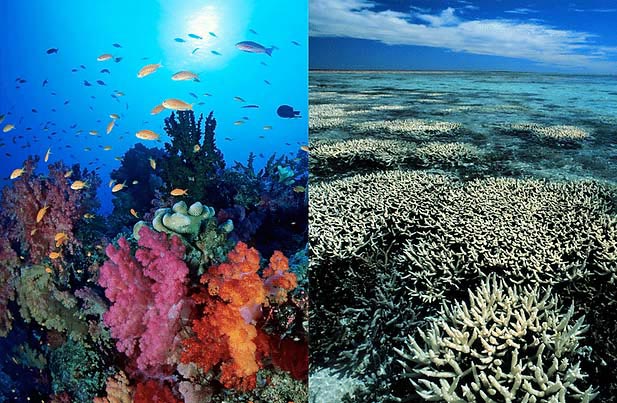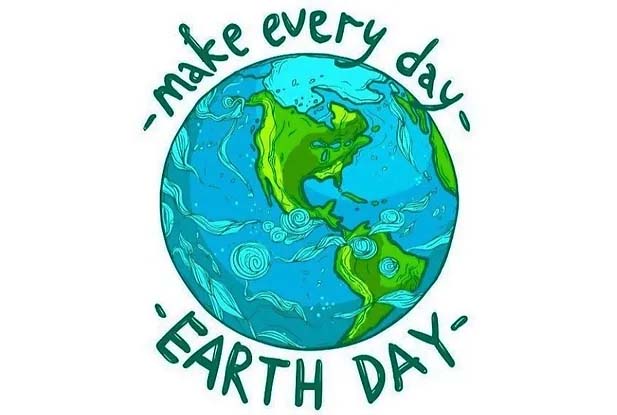Planet Earth: A Celebration – a message from Sir David Attenborough | BBC Earth
Today is the 51st Earth Day, but what does that mean? What are we supposed to do?
The first Earth Day in 1970 marked the start of a global movement towards environmental sustainability. In the decades leading up to it, many nations with developing industries consumed large amounts of natural resources with little fear of consequences that our future generations may face. However, we quickly realized that we can no longer stay oblivious to the polluted environment and its influence on our ecosystem. A transformational change was required immediately.
But first, let’s discuss what sustainability means.
Environmental sustainability is the ability to meet our needs without compromising or depleting natural resources. This means using the supplies in a way that allocates adequate time for the reservoir to replenish itself. Surrounded by clean water and natural parks, it’s easy to feel that these resources are infinite. However, the ugly truth is that we are bound by the limits of nature, and as we continue to develop, our demands will bring us further away from sustainability.

(Source: https://www.greenpeace.org/usa/whats-killing-coral-reefs-and-how-can-we-stop-it/. Left photo by Gary Bell / Oceanwideimages.com. Right photo by Greenpeace / Roger Grace)
Rising ocean temperatures cause coral bleaching, killing marine animals that depend on reefs for survival, such as sea turtles, fish, crabs, starfish, and many more. At the current rate, the ocean will no longer be able to support the interlocking ecosystem of aquatic organisms that provide us with numerous benefits. On top of that, more than 200,000 acres of rainforest are burned in a day (that’s equivalent to the size of 152 football fields!). There is a huge possibility that the Amazon rainforest may disappear within 50 years, which is seriously concerning (Source: rain-tree.com).
We must take bold and immediate action against the Climate Emergency. We have less than 7 years (6 years and 253 days if you’re reading this on Earth Day 2021) left on our climate clock before our damages to the environment become irreversible. We must implement dramatic changes in our global economy now to avoid raising global temperature to above 1.5ºC. Once we reach that point of no return, climate disasters will become increasingly frequent and severe. (Source: Climateclock.world). We are currently well past the point of sustainability, but it’s not too late to protect what is left of our planet.

(Source: https://www.sustainable.pitt.edu/earth-day-2020/)
There are so many documentaries that address climate change issues. My favourites that are on Netflix are Seaspiracy, Our Planet, What the Health, Cowspiracy, Rotten, and A Life on Our Planet by Sir David Attenborough. Some can be biased, so it’s important to watch the films with critical judgement. However, they all do an excellent job at delivering eye-opening information to the viewers and urging them to take action.
These documentaries target different issues that our planet is facing, such as mass deforestation to develop agricultural land, overfishing, water and air pollution, plastic waste, species extinction, and much more. It is heartbreaking to watch beautiful creatures lose their habitats and food sources because of our greed and apathy. On the other hand, the documentaries also suggest changes we can implement in our daily lives to reduce our carbon footprint. These include recycling/composting, walking whenever we can, avoiding overconsumption, planting trees, and raising awareness of our environmental impact. However, one solution is unanimously agreed upon by most experts and films.
A Plant-Based Diet
I am by no means suggesting that everyone becomes vegan overnight. I understand the need to consume meat and that this need will increase as the human population grows. Nonetheless, the meat and dairy industry is the leading cause of climate degradation, with its substantial contribution to the greenhouse effect (the production of methane and CO2 causes global temperatures to rise), water and crop overconsumption, waste production, deforestation, reduced biodiversity, and so on. However, if everyone was a bit more conscious of their dietary habits and tried their best to incorporate a plant-based diet, we would see incredible results. Eating a plant-based diet for just one month can save 33,481 gallons of water, 1370 lbs of grain, 913 square foot of forested land, 620 lbs of CO2, and 30 animal lives. Furthermore, you will be helping the environment and you may also notice your body feeling a little lighter, less inflamed, and healthier overall (this is backed up by scientific evidence!!).
(Sources: www.cases.open.ubc.ca/environmental-impact-of-meat-consumption, www.nature.com/articles/s41398-019-0552-0, thevegancalculator.com)
For calculating how much environmental footprint your food leaves, please visit https://www.bbc.com/news/science-environment-46459714
Ways to Reduce Your Carbon Footprint Include
- Riding your bike instead of vehicles
- Planting trees to reduce CO2 emissions
- Picking up trash at local beaches/parks
- Composting and recycling
- Installing water-efficient fixtures and appliances to reduce at least 20% of daily consumption
- Shopping at local farmer’s markets instead of grocery stores
- Minimizing unnecessary waste, such as using reusable masks, straws, and water bottles
- Avoiding overconsumption (don’t be wasteful!) and greenwashing companies (companies that falsely claim to be sustainable and environmentally friendly – but no consumerism is green!)
- Continuing to educate yourself and others around you about the climate emergency and how to help it
Our planet is fundamental to all lives on Earth, and we must stop taking it for granted. Take action now before it’s too late!

